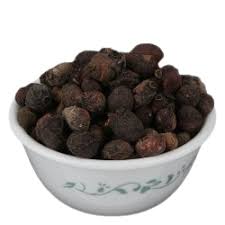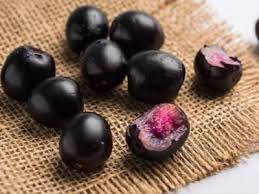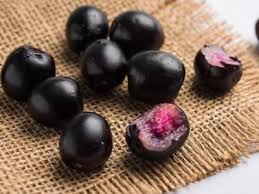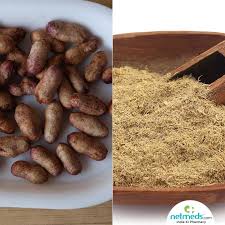Joint pain and arthritis can significantly impact one's quality of life, causing discomfort, reduced mobility, and pain. While conventional medicine often provides temporary relief, Ayurveda offers a holistic approach to managing these conditions by addressing the root causes, balancing the body’s energies, and restoring harmony. Ayurveda’s natural remedies, lifestyle practices, and dietary guidelines help alleviate pain, reduce inflammation, and support overall joint health. In this article, we explore how Ayurveda can be a powerful tool in managing joint pain and arthritis.
Long Description
1. Understanding Joint Pain and Arthritis in Ayurveda
In Ayurveda, joint pain and arthritis are often linked to an imbalance of the three doshas—Vata, Pitta, and Kapha. Each dosha affects different parts of the body, and the imbalance of any dosha can lead to pain and inflammation. Arthritis is typically considered a Vata disorder, as Vata governs movement and dryness in the body. When Vata is imbalanced, it can lead to the accumulation of toxins (Ama) in the joints, resulting in pain, stiffness, and inflammation.
- Vata Imbalance: Results in dryness, roughness, and reduced lubrication in the joints, leading to pain.
- Pitta Imbalance: Causes inflammation, heat, and redness in the joints.
- Kapha Imbalance: Leads to swelling, heaviness, and stiffness in the joints.
2. Ayurvedic Remedies for Joint Pain and Arthritis
Ayurveda offers several natural remedies to manage joint pain and arthritis by addressing the root causes, balancing doshas, and restoring joint health. Some of the most effective Ayurvedic treatments include:
Herbal Remedies: Ayurveda uses a variety of herbs known for their anti-inflammatory and pain-relieving properties. Popular herbs include:
- Ashwagandha: Known for its ability to reduce pain and inflammation, Ashwagandha also helps in improving joint mobility.
- Ginger: A potent anti-inflammatory herb that can relieve joint pain and stiffness.
- Turmeric: Contains curcumin, which is known for its powerful anti-inflammatory properties that help reduce joint inflammation.
- Shallaki (Boswellia): Known for its ability to relieve inflammation in the joints and improve mobility.
- Guggulu: A powerful resin that supports joint health and reduces inflammation.
Joint-Specific Oils and Balms: Ayurveda recommends the use of medicated oils and balms, which are massaged into the affected areas. These oils are often infused with herbs like turmeric, eucalyptus, and camphor, which help reduce pain, inflammation, and stiffness. Regular application of these oils can provide long-term relief from joint discomfort.
3. Panchakarma for Joint Pain Relief
Panchakarma is an Ayurvedic detoxification process that plays a vital role in managing joint pain and arthritis. It involves a series of therapeutic treatments aimed at removing toxins (Ama) from the body, reducing inflammation, and restoring balance to the joints. Some Panchakarma therapies beneficial for arthritis include:
- Abhyanga: A full-body massage with medicated oils helps improve circulation, reduce stiffness, and relieve pain.
- Swedana: Herbal steam therapy that promotes the release of toxins and helps reduce inflammation in the joints.
- Basti: A medicated enema that targets the colon and relieves imbalances in the digestive system that may contribute to arthritis.
- Nasya: Nasal therapy that helps cleanse the sinuses and improves overall respiratory and joint health.
4. Diet and Lifestyle Practices for Joint Health
Ayurveda emphasizes the importance of diet and lifestyle in managing joint pain and arthritis. The following practices can help reduce inflammation and improve joint health:
Anti-Inflammatory Diet: Ayurveda recommends eating foods that are warm, moist, and easy to digest to support joint health. Incorporate anti-inflammatory foods such as:
- Turmeric: A powerful anti-inflammatory herb.
- Coconut oil: Known for its ability to reduce inflammation and nourish the joints.
- Leafy greens: Rich in antioxidants and anti-inflammatory properties.
- Ghee: A traditional clarified butter that nourishes the joints and supports overall health.
Avoiding Aggravating Foods: Reduce the consumption of processed foods, fried foods, and excess dairy, as they can increase inflammation and aggravate arthritis.
Hydration: Drinking warm water with spices like ginger, cumin, and coriander can help soothe the digestive system and promote proper lubrication of the joints.
5. Yoga and Physical Therapy for Joint Health
Yoga is an integral part of Ayurvedic healing. Certain yoga poses, when practiced regularly, can help strengthen the joints, improve flexibility, and reduce stiffness. Poses such as Child's Pose (Balasana), Cat-Cow Pose (Marjaryasana-Bitilasana), and Downward Dog (Adho Mukha Svanasana) can be particularly beneficial for joint pain relief. These poses help stretch and strengthen the muscles surrounding the joints, reducing pain and inflammation.
6. Stress Management
Chronic stress can exacerbate joint pain and inflammation. Ayurveda promotes stress management techniques such as meditation, deep breathing exercises, and mindfulness to promote mental well-being and reduce the impact of stress on the body. By reducing stress, individuals can lower the levels of cortisol, a stress hormone that can worsen inflammation in the body.
7. Conclusion
Ayurveda offers a holistic, natural approach to managing joint pain and arthritis by addressing the root cause of these conditions. Through a combination of herbal remedies, therapeutic oils, diet, lifestyle changes, and yoga, Ayurveda can provide relief from pain, inflammation, and stiffness, supporting overall joint health. Embracing Ayurvedic practices can help individuals lead an active, pain-free life, free from the limitations of joint discomfort.













